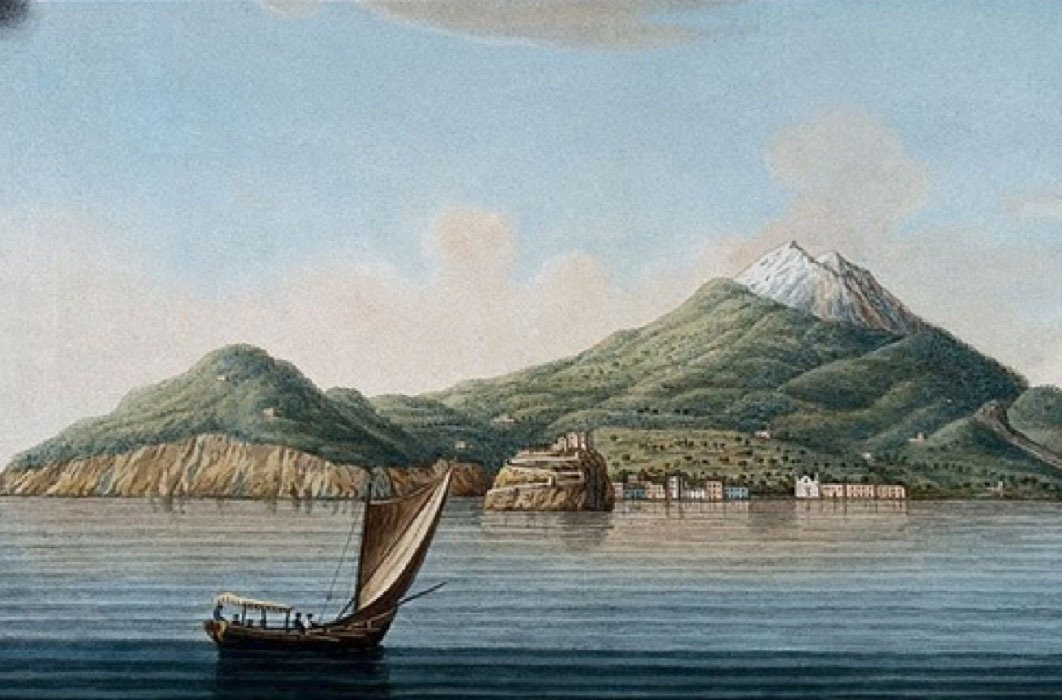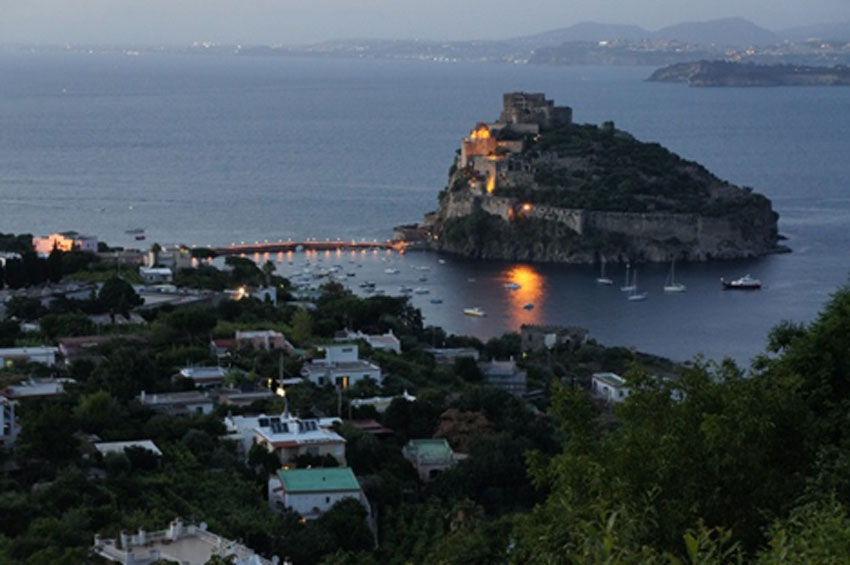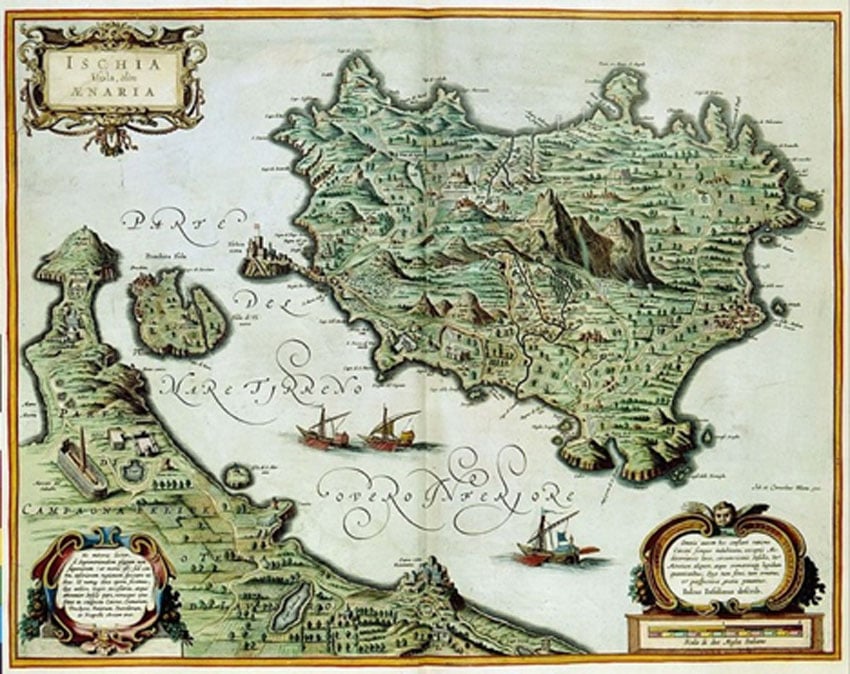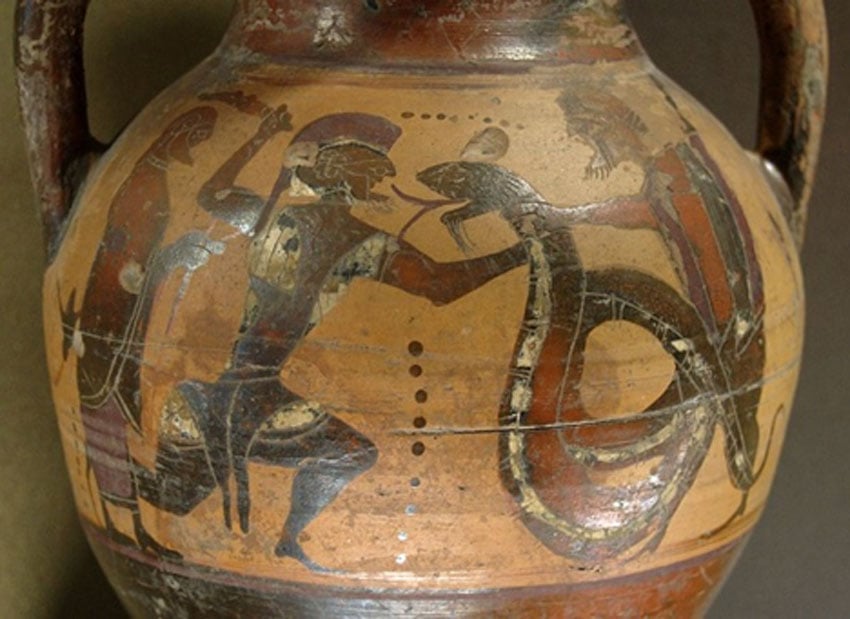
Pithekoussai: Ancient Greek Colony of Nestor’s Cup
Celebrated for its thermal springs and verdant landscapes, the volcanic island of Ischia, called Pithekoussai during its ancient Greek days —located in the Bay of Naples—harkens back to the Mycenaean era when it was part of a wide network of Tyrrhenian settlements that traded extensively with the Mycenean Greeks. It was the first Greek colony in all of Europe. Enterprising pioneers primarily from the Greek city-state island of Euboea (present-day Evvia) founded the colony in the mid-eighth century BC naming it Pithekoussai.

Modern Ischia, with Castello Aragonese, Veduta (Francesco Brecciaroli / CC BY-SA 4.0)
Zeus’ Monkeys or Pithoi?
But how did the Greeks arrive at that name? In his Natural History, Pliny the Elder claims that Pithekoussai was named for its numerous pithoi (large terracotta amphoras) which were more common there than in neighboring Iron Age sites. Others insist that the word was derived by the Greek pithekos meaning ape or monkey. Situated on what was then the western-most boundary of the Mediterranean, why was the island named after monkeys? To be sure, there are none nor have there ever been any monkeys in the area. But the notion of monkeys on a combustible island comes from Greek mythology when Zeus transformed naughty forest creatures into monkeys banishing them to a remote volcanic island. Still others surmise that its name may come instead from the Greek word pithekizo which meant ‘to monkey around’ and may have been a term used derisively by mainlanders to refer to the speculative and profiteering Greeks, who originally hailed from the Athens environs, several hundred miles away.

Ischia Island in the Atlas Van Der Hagen originally by the Italian cartographer Giovanni Antonio Magini (1555-1617) and copied by Joan and Cornelius Blaeu in 1640 (Public Domain)
Multi-Culture Settlement
Hailing from the Euboean cities of Eretria and Chalcis, although Euboeans were the island’s most populous settlers, the Corinthians had a presence in Pithekoussai as well. Yet the Greeks had company on the island. Excavated in the burial sites of the area is a population that is often overlooked when considering colonial settlements—the indigenous people. Based on Italic artifacts found there, speculation had been that the female natives of the community intermarried with the settlers. The theory was that the natives had no say in their culture except by virtue of marriage within the colonial community. But the assumption that the indigenous people were passive and subservient to the colonials has since been debunked. Instead, it has been affirmed that the Italic community were active and vital members working alongside the settlers in Pithekoussai. In fact, extensive trading between the natives and the colonists may have forged their relationship and acted as a chief impetus for setting up the colony in Pithekoussai in the first place.
Indeed, Italic people of the Tyrrhenian sea region likely lived in the area from the Bronze Age onwards, though to date there is no written record of their story. It should be noted that writing was becoming more common around the time the island was being colonized with the Greeks leading the vanguard from the fifth century BC and beyond. Perhaps, it is because of these inscribed records that there exists an historical bias in favor of the influence of the Greeks in the region. That being the case, the Greeks were not Pithekoussai’s only settlers. It is now known there was a sizable establishment of Phoenicians in Pithekossai as well. Indeed, experts believe that the Greek, Phoenician and native communities may not have only worked together on the island but lived together as well, developing a multi-cultural settlement.

Cadmus fighting the dragon. Side A of a black-figured amphora from Euboea, circa. 560–550 BC. (Public Domain)




